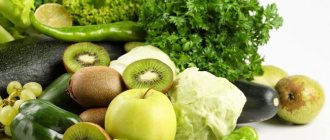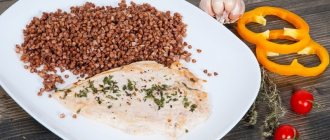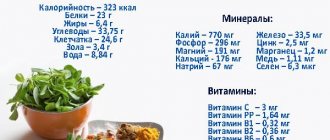The basic principle of losing weight is to create an energy deficit through a nutritional program and exercise.
If you follow it, then you can get rid of fat at any time. Moreover, you don’t have to do sports, it’s just that with its help you will achieve success faster. Today we will talk about how to quickly lose weight in winter at home. The principle we voiced in the fight against excess weight is extremely simple, but not every person understands what kind of energy deficit needs to be created. Nowadays you can find a lot of information on losing weight on the Internet. Various new nutrition programs appear almost every day. However, you don't need them at all. If you decide to get rid of excess weight, then you need to eat the right foods, which you should already know. It's all about the calories that we consume in food and spend on performing any movement. In addition, energy is expended by the body and on all biochemical processes occurring in it. It is the calorie deficit that we need to create. Note that first of all you should be interested not in how to quickly lose weight in winter at home, but in ways to do it correctly.
Most diet programs for losing excess weight will not be able to provide positive results in the long term, since due to strict restrictions you will lose weight very quickly, and this is unacceptable. In one week you need to get rid of a maximum of one kilo. Don’t even think about, say, 30 kilograms a month. If you do everything right, you will definitely lose excess weight and feel great at the same time.
Basic recommendations
By the way! In winter, weight gain is due to biological laws. Don't scold yourself for suddenly appearing kilograms!
The main problem of the winter period for the human body is a decrease in the activity of metabolic processes. Thus, the body begins to store fatty tissue, and if there are already slight weight deviations from the norm, then by spring they can turn into a very significant problem. That is why the main recommendations include:
- The need to be careful about the amount of calories in your daily diet: you cannot allow an increase;
- Physical activity, which usually begins to decline;
- Use of special winter power systems;
- Refusal of alcohol and harmful foods.
If your parameters do not suit you and you want to try an extreme option for losing weight, then it is best to first arrange a preparatory stage. It usually starts a week before the twelve-day cycle and includes a gradual reduction in the amount of sugar and salt used per day. This is a slow rejection of harmful foods, which will help you not feel acute changes in your diet before you start a strict diet.
If you immediately force yourself to start with strict restrictions, you can get a physical setback, which sometimes does not even allow you to continue using the nutrition system for weight loss.
Less saturated fat
Saturated fats include animal fats and some vegetable fats (such as palm oil). They are less healthy, so it is recommended to reduce their consumption. The main foods that contain a lot of saturated fat are red meat, lard, butter, eggs. 20 grams of butter per day will be enough: one or two sandwiches with butter, or this amount can be added to porridge. This way you can meet your daily requirement of saturated fat.
It is important not to overdo it; excessive consumption will lead to increased cholesterol levels in the body, impaired circulation in organs and vessels, problems with the gastrointestinal tract, and decreased brain activity.
Indications, contraindications and possible harm
On a note! Every person, be it a man or a woman, who is overweight, believes that the presence of hated kilograms is in itself an indication for starting some kind of diet. However, the right path starts with visiting a nutritionist and therapist who can identify safe ways to lose weight.
A strict version of the winter diet is not suitable for everyone.
The list of contraindications includes:
- The presence of any damage or chronic diseases of the gastrointestinal tract;
- Problems in the cardiovascular system;
- Disorders of the liver and renal system;
- Acute infectious diseases.
Pregnancy and lactation
Such a low-calorie diet with a limited supply of nutrients is not suitable for pregnant or nursing mothers, as there is a chance of harm to both yourself and the baby.
However, the winter diet has a gentle option, which, after consultation, can, of course, be used during pregnancy. But here it is very important to pay attention to individual characteristics and keep the attending physician informed.
More vegetables
Give preference to seasonal and local vegetables: carrots, pumpkin, potatoes, beets, cabbage (especially sauerkraut). Eat them fresh or cooked. Seasonal foods that grow naturally contain maximum minerals and vitamins. And also with a minimum of dangerous chemicals.
Vegetables brought from afar absorb heavy metals and other contaminants during transportation. They are often picked unripe and processed to prevent them from spoiling along the way.
Natural, seasonal foods are rich in nutrients. They will support your health and keep you strong. In addition, the human intestinal microflora changes throughout the year. Its optimal environment is maintained by vegetables that are available in their ripening season.
Nutritionist advice
- Frequent meals are preferable. It is better to eat in small portions, quite often and according to a schedule;
- You also need to watch what and how much you drink. You need to consume at least one and a half liters of water/juice/tea/fruit juice/compote every day;
- You cannot completely exclude carbohydrates from your diet, otherwise you risk harming your immunity. In addition, it is carbohydrates that provide you with energy. And, nevertheless, some foods containing fast carbohydrates should be abandoned;
- Hot food must be present;
- You cannot slide towards the mono-approach characteristic of other diets - food should be varied;
- You also can’t give up fats, but you should give preference to vegetable rather than animal ones;
- Fresh fruits, rich in vitamins and fiber, are especially needed by the body in winter.
Basic rules of nutrition in winter
In winter, first of all, you need to remember that sharply reducing your diet in order to maintain or reduce weight means achieving the exact opposite effect. The smaller the daily portion, the more the body will put aside “in reserve.” There are several basic rules of proper nutrition that must be followed in winter.
This:
- fractional meals are better than overeating;
- water is a vital necessity for digestion and brain function;
- vitamin C – strengthens the immune system, blood vessels and prevents colds;
- hot lean soups - improve digestion and reduce calories;
- We replace high-calorie foods (potatoes, white rice, pasta) with vegetables rich in fiber;
- It is better to replace hot coffee, cocoa, chocolate with herbal infusions or green tea;
- if it is difficult to eat small meals, then use fruits and low-fat yogurt for snacks during three meals a day;
- we give up the “three pillars” that help to gain weight - sugar, salt, fatty foods.
As you can see, everything is simple. You just need to be consistent in your aspirations to lose weight in winter.
How to create a menu
Selecting a weekly diet for a winter diet is not difficult. At the same time, there is even room for a creative approach (if we are not talking about an emergency version of this diet). Guided by the list of permitted and prohibited foods during the diet, you can choose the best and most pleasant option for yourself. Of course, it is worth taking into account the duration of the diet - the longer period of time you decide to allocate in order to take care of yourself, the easier it is to diversify your diet.
Don't forget that your body still needs to get enough vitamins and other nutrients to stay healthy. If you do not carefully monitor this, the results obtained during the diet will not last long due to the impact on the body’s immune system.
Suitable Products
The time has come to identify the set of products that form the basis of the winter diet. This:
- Bread (rye or whole grain);
- Dairy products (and fermented milk) with reduced fat content;
- Seafood, sea (fatty) and river (lean) fish;
- Egg white;
- Unsweetened fruits;
- Vegetables/greens - for example, onions, lettuce, cucumbers, asparagus, garlic, green beans, cabbage (not cauliflower), bell peppers, zucchini, green peas (the main thing when choosing vegetables is low starch content), as well as all kinds of greens, including celery, spinach, etc.;
- Meat - rabbit, chicken, lean red meat, steamed or baked;
- Oils: linseed, olive, sunflower;
- Nuts, seeds;
- Green or herbal tea, non-carbonated mineral water, rosehip decoction, freshly squeezed juices from the vegetables indicated above.
Attention! absolutely forbidden to fry even permitted foods . In this form, they do not represent anything useful and can reduce the entire result to zero.
What products need to be excluded?
Now let's move on to the products that will have to be removed from the refrigerator:
- Pasta, porridge, white rice;
- Canned food, salt, mayonnaise, ketchup and similar sauces;
- Fatty dairy and fermented milk products (including butter, cream, fermented baked milk, fatty cottage cheese and cheese, sour cream);
- Vegetables rich in starch - pumpkin, turnips, corn, carrots, eggplants, beets, potatoes (except baked);
- Animal fats;
- Anything that contains a large amount of fast carbohydrates - honey, sugar, preserves and jams, sweet fruits, all kinds of confectionery (including chocolate), condensed milk, ice cream, dried fruits and sweet drinks;
- From meat - duck, goose, fatty red meat, as well as its derivatives (smoked meats, ham, bacon, sausages, lard, fast food);
- Strong coffee, alcohol.
Classic version of the winter diet
It will allow you to lose two to three kilograms per month and is usually calculated for the entire cold period (that is, ninety days). It has different subtypes that take into account the taste preferences of the person losing weight:
- Protein: per day you can eat chicken eggs, hard cheese, apples, boiled meat, a sandwich with butter, dairy products, vegetable and meat broth soups, oatmeal, fruit salads or vegetable casseroles. Lunch is characterized by dried fruits and nuts; before bed, it is best to drink a glass of kefir;
- Fish: in principle, similar, but instead of meat dishes it is supposed to use boiled fish and fish soup. In addition, the fish can be baked.
The vegetarian option excludes the use of protein foods; usually the daily menu looks like this:
| Breakfast | Boiled or baked potatoes or oatmeal, whole grain bread, strong tea |
| Lunch | Fruit or slice of cheese |
| Dinner | Vegetable soup or borscht without meat broth, stewed vegetables, whole grain bread |
| Dinner | Vegetable casserole or carrot salad with grated apple. Green tea sweetened with honey |
| Before sleep | Milk, kefir or tea |
On a note! You need to drink at least one and a half liters of ordinary water per day - not mineral and without gas.
Extreme diet
The emergency 12-day winter diet is a variation that is tough, unlike the traditionally gentle but longer classic version. This means of losing weight is preferred by those who want to shed pounds in a hurry - for example, before the winter holidays or a birthday. If you strictly follow the plan, you can lose up to eight kilograms as a result. However, do not underestimate the harshness of this approach - this subtype of winter diet is not suitable for everyone, and for many it is even contraindicated. It also differs in its general approach - nutritional diversity is achieved by alternating mono-nutrition, rather than combining a little of everything. Some changes also affect diet.
The 12-day emergency winter diet is divided into four stages of three days:
- The first stage is kefir (which is not included in the list of permitted products in the classical approach). All three days it is allowed to eat only kefir - no more than 800 kcal in one day;
- The second stage is chicken meat. Steamed, classic or baked. And nothing but him. Keep in mind that you need to stay within the allowed 800 kcal per day;
- The third stage is vegetables. Baked, boiled or raw, but only these for all three days. Skip the potatoes and limit yourself to 800 kcal;
- The fourth stage is also the final one. In some ways he is special. Now you must drink red wine for three days, and only hard cheese is allowed as a snack. Continue to monitor your calorie intake, which should not exceed 800 kcal per day.
How to get out of a diet correctly
Many diets are complicated by the fact that getting out of them is also an art. But this is not about a winter diet. It has nothing to do with strict restrictions, when you can’t eat almost anything at all - no hunger strikes, which are a strong stress for the body, so parting with it can be easy and simple.
Gradually allow onto your table what you have limited yourself to, not forgetting that abuse can negate the results obtained in a matter of days. Products that were on the prohibited register should not form the basis of your regular diet after the end of the diet. Continue to focus on wholesome, healthy food, on reasonable, healthy nutrition - and then the lost weight will not come back to you.
Note! Correct exit from the diet guarantees the preservation of the results obtained.











